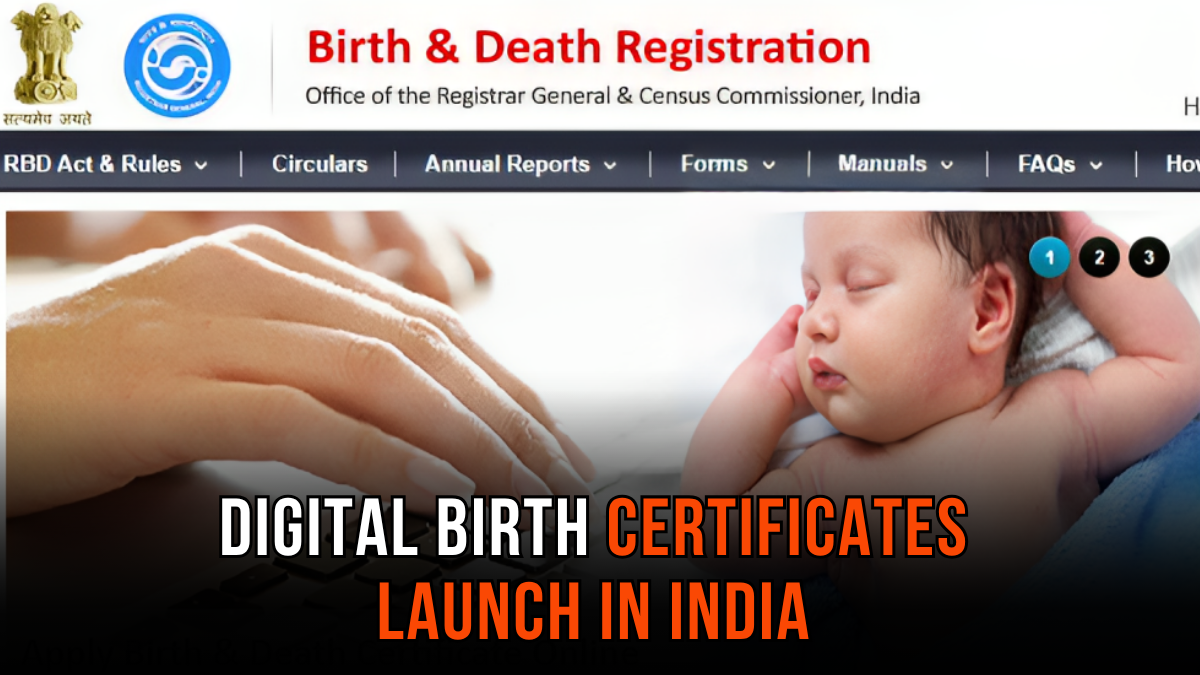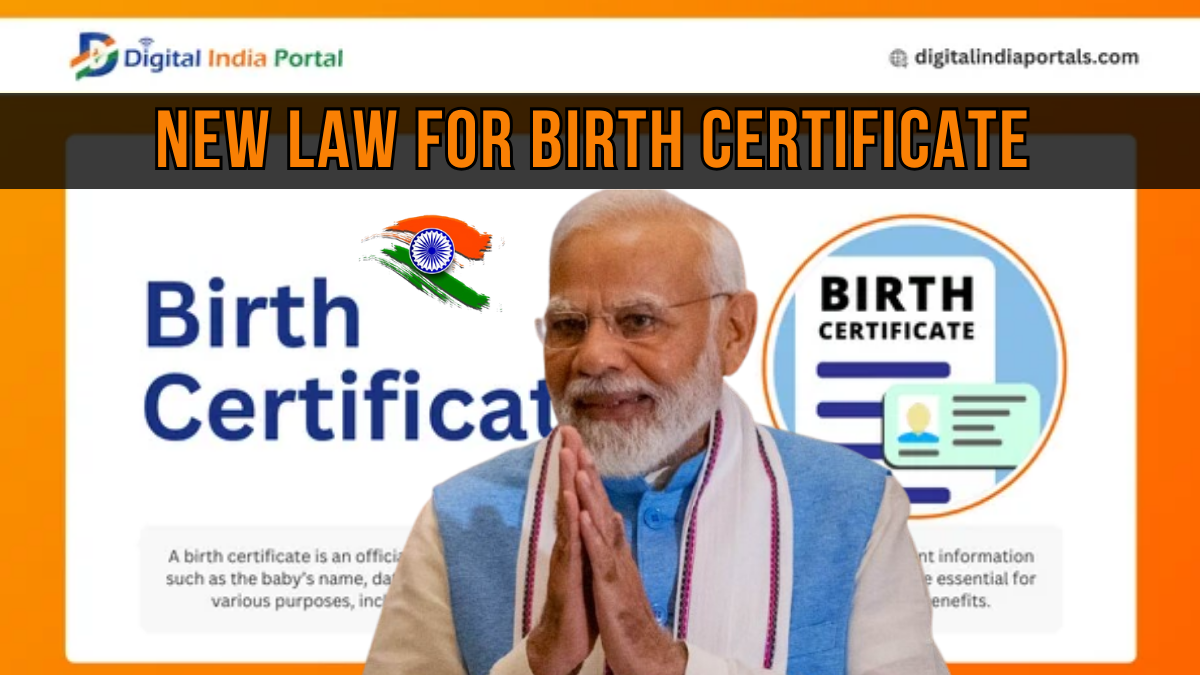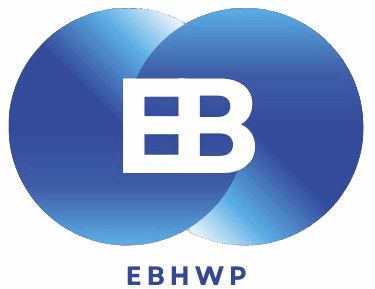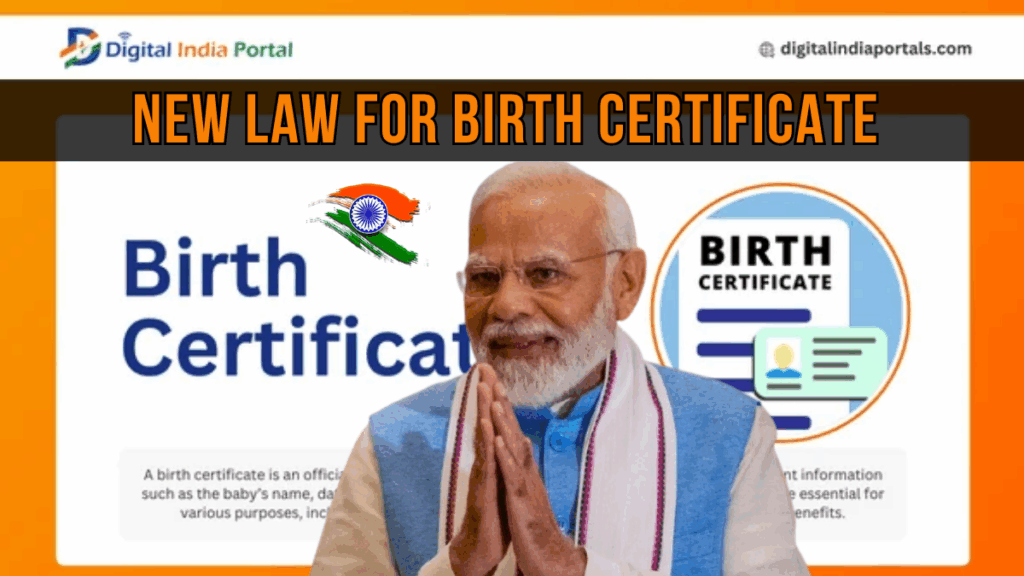India is preparing for a revolutionary change in how citizens access essential documents. Starting August 2025, the country will roll out a comprehensive digital birth certificate system that promises to transform the way families register births and obtain official documentation. This nationwide initiative represents a significant step forward in India’s digital governance journey, offering citizens a streamlined, secure, and accessible way to manage one of life’s most fundamental records.
The digital birth certificate program aims to replace the current fragmented, paper-based system with a unified national platform. Parents will no longer need to navigate multiple offices or wait weeks for document processing. Instead, they’ll have instant access to tamper-proof, legally valid certificates through a single online portal.

This transformation extends beyond convenience. The new system integrates with existing national databases, including Aadhaar and DigiLocker, creating a seamless ecosystem for document verification and storage. For millions of Indian families, this means faster school admissions, simpler passport applications, and reduced bureaucratic hurdles across all government services.
Understanding India’s Digital Birth Certificate Initiative
The digital birth certificate program represents a fundamental shift in how India handles civil registration. Managed by the Office of the Registrar General of India under the Ministry of Home Affairs, this initiative creates a single national database for all birth registrations across states and union territories.
The system addresses several critical challenges with the current manual process. Regional variations in documentation, lengthy processing times, and susceptibility to fraud have long plagued India’s birth registration system. The digital approach eliminates these issues by standardizing procedures and implementing robust security measures.
Key features of the new system include real-time data integration with hospitals, automatic verification through Aadhaar-linked systems, and instant certificate generation. Once issued, certificates are permanently stored in DigiLocker, ensuring they’re never lost and always accessible when needed.
The initiative also supports India’s broader Digital ID transformation strategy. By digitizing birth records, the government creates a foundational layer for other identity services, making it easier for citizens to access everything from education benefits to financial services.
How the August 2025 Rollout Will Transform Registration
The August 15, 2025 launch date carries symbolic significance, coinciding with India’s Independence Day. This timing reflects the government’s commitment to digital independence and modernized citizen services.
The rollout strategy involves multiple phases to ensure smooth implementation. Initially, major hospitals and urban centers will integrate with the system, followed by gradual expansion to rural areas and smaller healthcare facilities. This phased approach allows for system testing and staff training while minimizing disruption to existing services.
Healthcare providers play a crucial role in the new system. Hospitals will directly upload birth data in real-time, eliminating the need for parents to manually submit paperwork to registration offices. This automation reduces processing time from weeks to minutes while minimizing human error.
The system also accommodates different registration scenarios. Whether a birth occurs in a major hospital, a rural health center, or at home, the digital platform provides appropriate pathways for registration and verification.
Step-by-Step Application Process
Applying for a digital birth certificate involves a straightforward online process designed for user-friendliness. Parents can access the system through the official Civil Registration Portal or dedicated mobile application, both available in multiple regional languages.
The application begins with basic information entry. Parents provide details about the newborn, including name, date and time of birth, place of birth, and parental information. The system validates this data against hospital records and other official sources to ensure accuracy.
Document upload represents the next crucial step. Parents submit hospital-issued birth proof or, in cases of home births, appropriate declaration documents. The system accepts various file formats and provides clear guidelines for document quality and requirements.
Aadhaar integration, while optional, significantly streamlines the verification process. When parents link their Aadhaar numbers, the system can automatically verify identity information and expedite processing. This integration also enables seamless connection with other government services.
Upon submission, applicants receive immediate acknowledgment with a unique tracking number. The system processes applications automatically, conducting verification checks and generating the digital certificate. Most applications complete processing within 24-48 hours, with certificates automatically delivered to the applicant’s DigiLocker account.
Key Benefits for Citizens and Government
The digital birth certificate system delivers substantial advantages for all stakeholders. Citizens gain unprecedented convenience through 24/7 online access, eliminating the need for office visits during specific hours. This accessibility particularly benefits rural populations who previously faced significant travel requirements for document services.
Document security represents another major improvement. Digital certificates include advanced security features that prevent tampering and forgery. Each certificate contains unique digital signatures and verification codes that allow instant authenticity confirmation by any government department or authorized entity.
The system also ensures document permanence. Unlike physical papers that can be damaged, lost, or destroyed, digital certificates remain safely stored in cloud-based systems with multiple backup layers. Citizens can download fresh copies anytime without requiring reapplication or additional fees.
For government operations, the digital system dramatically improves efficiency and reduces costs. Automated processing eliminates manual data entry and reduces staffing requirements for routine tasks. The unified database also enables better population statistics and policy planning based on accurate, real-time data.
The integration with other digital services creates additional value. Birth certificates automatically link with Aadhaar enrollment, school admission systems, and passport services, reducing duplicate data entry and streamlining citizen interactions across multiple government touchpoints.

Preparing for the Digital Transition
Citizens can take several steps to prepare for the August rollout and maximize the benefits of the new system. Setting up a DigiLocker account represents the most important preparation step, as this platform will serve as the primary storage location for digital certificates.
Parents expecting children should ensure their own identity documents are current and properly linked to their Aadhaar numbers. This preparation will facilitate smooth verification when registering their newborn’s birth. Having digital copies of identity documents readily available will also speed up the application process.
Understanding the new procedures helps set appropriate expectations. While the digital system is designed for simplicity, familiarizing yourself with the portal interface and required information before an actual birth registration can reduce stress during what is already an exciting but busy time for new parents.
Healthcare providers are also preparing for the transition through staff training and system integration. Parents should verify that their chosen hospital or healthcare facility is ready for digital integration, particularly if planning births in smaller or rural facilities.
Frequently Asked Questions (FAQs)
1. What is the digital birth registration system?
The digital birth registration system is a new platform that allows parents to register their child’s birth online, streamlining the process and eliminating the need for paper-based forms and in-person visits.
2. How do I access the digital birth registration portal?
You can access the portal through your health department’s official website or via a link provided by the hospital or healthcare facility where the birth took place.
3. Is the digital registration process available nationwide?
The availability of the digital system depends on regional implementation. Be sure to check with your local health department or chosen healthcare provider to confirm whether the system is active in your area.
4. What documents or information will I need to complete the registration?
Typical requirements include proof of identity for both parents, information related to the birth (date, time, and location), and sometimes supporting documents like marriage certificates or medical records.
5. What happens if I experience technical issues while using the portal?
Most digital registration systems come with technical support or a helpline you can contact for assistance. Check the portal’s support section for detailed instructions and contact information.
6. Can both parents complete the registration online?
Yes, most systems allow either parent or both (if applicable) to input and review the required information collaboratively through secure logins. Always ensure that provided details are accurate before submission.
7. How long does it take to receive a birth certificate after registration?
Processing times may vary by region or system infrastructure. Typically, you will receive the certificate within a few days to a couple of weeks. Many portals also offer tracking to monitor your application’s status.
Looking Ahead: Digital India’s Next Chapter
The digital birth certificate initiative represents just the beginning of India’s comprehensive document digitization strategy. Success with birth certificates will likely lead to similar transformations for marriage certificates, death certificates, and other civil registration documents.
This systematic approach to digital governance positions India as a global leader in citizen service innovation. The lessons learned from the birth certificate rollout will inform future digitization projects and help establish best practices for other developing nations pursuing similar goals.
The program also demonstrates India’s commitment to inclusive digital growth. By ensuring rural and urban populations have equal access to digital services, the initiative supports broader economic and social development goals.
As August 2025 approaches, millions of Indian families will soon experience a fundamentally different way of obtaining essential documents. The digital birth certificate system promises to make government services more accessible, secure, and efficient while laying the groundwork for even more comprehensive digital governance improvements in the years ahead.
For More Information Click Here





